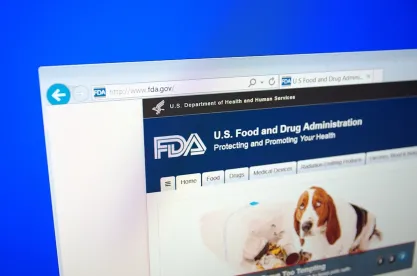-
In a letter dated May 18, 2022, FDA denied a citizen petition from Bonumose LLC which requested that the Agency (1) exempt D-tagatose from classification as an “Added Sugar” and (2) allow for the voluntary labeling of D-tagatose as a separate declaration under “Total Carbohydrates,” similar to the approach taken for sugar alcohols.
-
By way of background, FDA exercises enforcement discretion which allows allulose to be excluded from the “Total Sugars” and “Added Sugars” label declarations and allows the use of 0.4 kcal/g for allulose when determining “Calories.” See Guidance for Industry: The Declaration of Allulose and Calories from Allulose on Nutrition and Supplement Facts Labels. FDA had also previously requested information on the kinds of sugars that are metabolized differently than traditional sugars, any distinct physiological effects caused by those sugars, and suggestions on how those sugars should be declared and accounted for on food labels. See 85 Fed. Reg. 66335 (Oct. 19, 2020).
-
FDA declined to exempt D-tagatose from classification as an added sugar primarily because its caloric contribution of 1.5 kcal/g was not negligible. FDA explained that the declaration of added sugars is intended to allow consumers to avoid calories that do not make a significant nutritional contribution (i.e., “empty calories”). Although 1.5 kcal/g is significantly less than the 4 kcal/g that most familiar sugars (e.g., sucrose) contribute, it is also significantly more than the 0.4 kcal/g that allulose contributes. FDA also noted that at the use levels indicated in Bonumose’s GRAS Notice for D-tagatose, D-tagatose could significantly contribute to a consumer’s intake of empty calories. However, the Agency did indicate that it would not object to the use of 1.5 kcal/g for D-tagatose when determining “Total Calories.” Because FDA determined that it was appropriate to consider D-tagatose as an added sugar, it also declined to allow for voluntary labeling of D-tagatose in a manner similar to sugar alcohols.
-
FDA’s response is interesting because it focuses solely on the caloric issue to the exclusion of differences in the way that D-tagatose is metabolized and its physiological effects. FDA’s only comment on the latter points is to note that a health claim that D-tagatose may reduce the risk of dental caries is allowed under 21 CFR 101.80.
FDA Denies Request to Exempt D-Tagatose from Added Sugar Labeling
Tuesday, May 24, 2022
Current Public Notices
Published: 28 August, 2025
Published: 25 August, 2025
Published: 25 August, 2025
Published: 25 August, 2025
Published: 25 August, 2025
Published: 22 August, 2025
Published: 20 August, 2025
Published: 20 August, 2025
Published: 18 August, 2025
Published: 18 August, 2025
Published: 15 August, 2025
Published: 14 August, 2025
Published: 12 August, 2025
Published: 11 August, 2025
Published: 8 August, 2025



 />i
/>i
